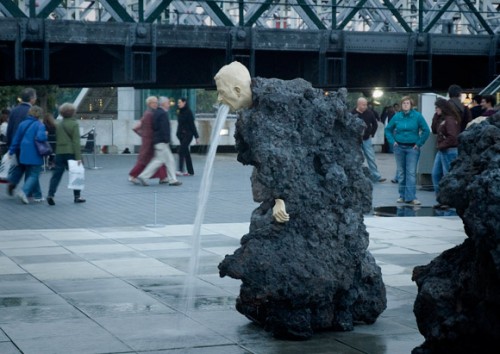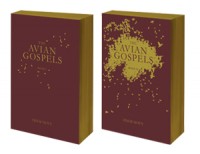First Sentences or Paragraphs #2: Big Novel Edition
[series note: This post is the second of five, in a week-long series examining first sentences or paragraphs. It’s not my intention to be prescriptive about what kinds of first sentences writers ought to be writing. Instead, I hope to simply take a look at five sets of first sentences for the purpose of thinking about how they introduce the reader to the story or novel to which they belong. I plan to post them without commentary, as one might post a photograph or painting, and open up the comment threads to your observations as readers. Some questions that interest me and might interest you include: 1. How is the first sentence (or paragraph — I’ll include some of those, too, since some first sentences require the next few sentences to even be available for this kind of analysis) interesting or not interesting on grounds of language? 2. Does the first sentence introduce any particular (or general feeling of) trouble or conflict or dissonance or tension into the story that makes the reader want to keep reading? 3. Does the first sentence do anything to immerse the reader in the donnee, the ground rules, the world of the story, those orienting questions such as who speaks, when and where are we in space and time, etc.? 4. Since the first sentence, in the wild, doesn’t exist in the contextless manner in which I’ve presented these, in what kinds of ways does examining them like this create false ideas about the uses and functions of first sentences? What kinds of things ought first sentences be doing? What kinds of things do first sentences not do often enough? (It seems likely to me that you will have competing ideas about first sentences. Please offer them here. Every idea or observation gets our good attention.) The sentence/paragraph sets we’ve been or will be observing: 1. first sentences from Mary Miller’s Big World; 2. first sentences from physically large novels; 3. the first sentences from every book written by Philip Roth; 4. first sentences from the Norton Anthology of Short Fiction; 5. first sentences from Best European Fiction 2010.]
“Our God surpasses the Gypsy god; He is more avuncular and noble, though some of us begrudgingly admit their god is more assertive than our God, whom we haven’t seen or heard from since He rose from His own corpse and promised to rescue us from peril, and He has, though in secret, and if you could witness His wondrous methods you surely would fizzle in awe, so decent and grand is He, our Savior, who speaks in a voice that is no voice, not the song of any bird, not the snap of burning logs or crunch of shoes on sand.”
– The Avian Gospels, Adam Novy
“This book is largely concerned with Hobbits, and from its pages a reader may discover much of their character and a little of their history.”
– The Fellowship of the Ring, J.R.R. Tolkien READ MORE >
Today in Class: School’s Out Edition

School’s out, and now it’s grading time. The students in my Deeper Poetics class turned in final portfolios last week, which include 5-7 page prefaces outlining their poetics in terms of what we studied (poetry and prose about poetry) throughout the semester. In true procrastinator form, I’ve only read five of the portfolios, but what I’m struck by is how each student took something distinct, and distinctly her/his own, from the class.
Against the backdrop of essays by James Tate and Heather McHugh, one student, Kejt, writes about her Quaker roots, and how during Sunday service, “I sit in the pews with everyone else in stillness, and we wait.” She goes on:
In poetry, the silence is just as important as the words chosen. To wrestle with and engage poetry fully we have to come to grips with our terror of silence, of emptiness, of lack. There are a lot of reasons for this societal fear of not speaking, and my Quaker beliefs compel me sometimes to spend time considering why we’ve built a culture without much room or gratitude for silence. Poetry has to contend with wordlessness, though, has to touch it, caress it, and circumnavigate it.
Wow. Beautiful, huh?
And on revision, Andrew writes:
Much of my stylistic growth, I feel, is attained through increasing the volume of my output, that is to say, by writing more poems. I’ve adapted the revision process to suit my needs according to that acquired knowledge. Thus, revision has become to me not the process of modifying an existing draft of a poem to more clearly articulate its project, but reemploying the elements of a single image or idea in order to produce as many variations of one concept as a I possibly can. The result is a method of revision that reproduces a poem so many different ways they hardly resemble a single source.
The Academic Life Is Not Candy Land
Anytime I hear the rhetoric about the shelter of academia, I cannot help but think, “What the hell are you talking about?” A job is a job is a job. I have been really interested in some of the responses to Lily’s post about the utility of her MFA, where people have expressed that an academic job involves shelter from the “real world,” and that the simple solution to her very real and valid concerns is to extract herself from the warm and safe cocoon of academia so she might experience “reality.” This is actually a rather common, albeit sort of delusional sentiment, the idea that to know the “real world” one must suffer, toil in poverty, travel, work as a waitress or any other prescription you might have for where the real world is actually taking place.
While nothing is guaranteed, nor should it be, when you pursue a terminal degree and you want to teach, it is frustrating to learn that you may not be able to do what you trained to do, or you might get an academic job without security, working for what amounts to less than minimum wage even though you have excellent credentials. Yes, life is unfair, but the solution here is not for Lily to “walk it off,” or “just write,” because, as I interpeted her post, Lily is not so much lamenting she doesn’t have time to write because she’s in a PhD program. She is lamenting she doesn’t have time to write because she cannot do what she trained to do by getting her MFA even though she has an impressive list of credentials. Hers is the frustration of being the best and having your best not be good enough. That’s a really bitter pill to swallow.
In the meantime, I just finished my first semester as a faculty member at a mid-sized Midwestern public university. I think a lot of these misperceptions about academia and its relationship to reality arise because people simply don’t know what faculty do when they’re not in the classroom or frolicking all summer, or what it takes to become a faculty member. Creative writing is only part of what I do, but I have colleagues who strictly teach creative writing and have the exact same workloads and tenure expectations.
e-books all calorie suck
E-book assassin, etc. My first response was falling sky, or I am sick of people saying the e-book will garrote the book book. But then I read the article and found several points for possible discussion here:
1. Was the indie bookstore having troubles anyway? The e-book might be gaseous, but maybe the canary died from starvation?
2. One complaint is about “browsing.” You’ll do your browsing online, then just drop by the brick/mortar store and get the book you already know you want. You won’t browse at the store. To me, if you enter the store, all is good. Who cares why/how you entered?

3. But people sell their books online now, so don’t enter a used store to sell, and therefore another opportunity missed to buy.
4. Google ebooks allows indie bookstores to join/not beat the future.
5. All the ebooks in the world aren’t going to replace the “space” of a bookstore, readings, signings, coffee, conversation….
First Sentences or Paragraphs #1: Mary Miller Edition

[series note: This post is the first of five, in a week-long series examining first sentences or paragraphs. It’s not my intention to be prescriptive about what kinds of first sentences writers ought to be writing. Instead, I hope to simply take a look at five sets of first sentences for the purpose of thinking about how they introduce the reader to the story or novel to which they belong. I plan to post them without commentary, as one might post a photograph or painting, and open up the comment threads to your observations as readers. Some questions that interest me and might interest you include: 1. How is the first sentence (or paragraph — I’ll include some of those, too, since some first sentences require the next few sentences to even be available for this kind of analysis) interesting or not interesting on grounds of language? 2. Does the first sentence introduce any particular (or general feeling of) trouble or conflict or dissonance or tension into the story that makes the reader want to keep reading? 3. Does the first sentence do anything to immerse the reader in the donnee, the ground rules, the world of the story, those orienting questions such as who speaks, when and where are we in space and time, etc.? 4. Since the first sentence, in the wild, doesn’t exist in the contextless manner in which I’ve presented these, in what kinds of ways does examining them like this create false ideas about the uses and functions of first sentences? What kinds of things ought first sentences be doing? What kinds of things do first sentences not do often enough? (It seems likely to me that you will have competing ideas about first sentences. Please offer them here. Every idea or observation gets our good attention.) The sentence/paragraph sets we’ll be observing: 1. first sentences from Mary Miller’s Big World; 2. first sentences from physically large novels; 3. the first sentences from every book written by Philip Roth; 4. first sentences from the Norton Anthology of Short Fiction; 5. first sentences from Best European Fiction 2010.]
There’s a leak, I told him, it’s right over my bed. He didn’t believe me. I was a girl.
– “Leak”
My sister is inside watching a movie and bleeding. I don’t bleed anymore. It’s not something I thought I’d miss.
– “Even the Interstate is Pretty”
He had an air gun, a beer box set up to shoot. We were in a hotel room in Pigeon Forge. READ MORE >
Lineage: justifiable matricide vs. I mothered you hoes
Do you feel a duty to read and acknowledge your literary, theoretical, and musical foremothers? Do you feel obligated to know the canon even though you don’t find it relevant to you? Do mothers really know what their daughters want? Are you angered by ignorant people of the younger generation who haven’t taken the time to read the foundational texts? Is Nicki Minaj arrogant for not acknowledging her debt to Lil’ Kim? Where do you fall on the questions of lineage and inheritance? Some ideas to chew on beneath the cut.
Letitia Trent Lives in Israel and Writes Poems About Oklahoma and Japanese Films

Letitia Trent
New Letitia Trent poems appear at As It Ought to Be. Here is the beginning one of them:
Ju On (dir. Takashi Shimizu, 2000)
Mother, when I return
you are still here, scuttling in the rafters, knees
busted, blue, blood
in your teeth READ MORE >
Les Figues’s 2011 TrenchArt Series: Recon
New & forthcoming from the always provocative Les Figues:
The 2011 TrenchArt series—Recon—is now available for new memberships and renewals.
For as little as $60, you can receive all five books in the series, individually mailed to you as they are published throughout the new year. This means you’ll receive:
- TrenchArt: Recon (aesthetics) Available now!
- Negro Marfil | Ivory Black, by Myriam Moscona, translated by Jen Hofer
- Tall, Slim and Erect: Portraits of the Presidents by Alex Forman
- By Kelman Out of Pessoa by Doug Nufer
- The Phonemes by Frances Richard
Each book is also the site of an unfolding articulation by visual artist Renee Petropoulos.Give more than $60, and receive a tax-deduction! See all member levels.Plus there’s more: the TrenchArt Recon series is designed by writer/artist Janice Lee. The covers for the aesthetic collection were letterpressed by the amazing Brian Teare. Each book is hand-stamped with an image designed by Renee Petropoulos. The stamping will continue throughout the year, which means, members only will receive specially stamped books!
The TrenchArt series also makes a wonderful holiday gift. Simply indicate “gift” in the comments box, and we’ll include a note in the package.
“It is a dangerous book.” – Glenn Beck Reviews The Coming Insurrection

The Coming Insurrection
by
The Invisible Committee
(MIT Press, 2009)
from the “dangerous book”:
“I AM WHAT I AM.” My body belongs to me. I am me, you are you, and something’s wrong. Mass personalization. Individualization of all conditions – life, work and misery. Diffuse schizophrenia. Rampant depression. Atomization into fine paranoiac particles. Hysterization of contact. The more I want to be me, the more I feel an emptiness. The more I express myself, the more I am drained. The more I run after myself, the more tired I get. We cling to our self like a coveted job title. We’ve become our own representatives in a strange commerce, guarantors of a personalization that feels, in the end, a lot more like an amputation. […] Meanwhile, I manage. The quest for a self, my blog, my apartment, the latest fashionable crap, relationship dramas, who’s fucking who… whatever prosthesis it takes to hold onto an “I”!
You can read the whole thing for free online here. After the jump, check out the concluding thoughts of this “dangerous book,” and watch Glenn Beck review it on Fox News.
“…philosophy is music, music is philosophy, and the other way round.” – Thomas Bernhard
httpv://www.youtube.com/watch?v=pbPUkLrmzUA
Abner Jay reinverts the age-old ‘looking for a virgin’ myth in “Don’t Mess With Me Baby.”
httpv://www.youtube.com/watch?v=vpjy0MOMn3Y
Anthony Braxton called Abner Jay an American master.
December 11th, 2010 / 3:01 am



